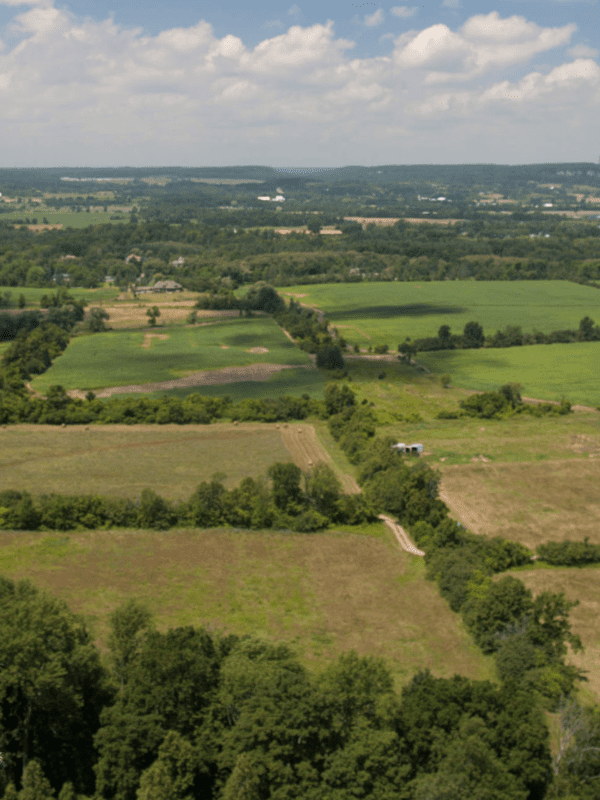Toronto | Traditional territories of the Huron-Wendat, the Anishnaabeg, Haudenosaunee, Chippewas and the Mississaugas of the Credit First Nation – Today, Premier Doug Ford and Municipal Affairs Minister Steve Clark are meeting with Ontario’s Big City Mayors and Regional Chairs at the Provincial-Municipal Housing Summit. The government says this meeting will aim to “tackle the issue of housing affordability.” However, Minister Clark’s recent statements suggest any discussion on the well-founded concerns about out-of-reach rents and home prices will be little more than a pretext to demand urban boundary expansions onto farms and forests and the reduction of environmental protections, neither of which will increase housing supply or address affordability.
Environmental Defence spokespeople are available for interviews about the key facts and actions required for housing affordability that should be part of the Provincial-Municipal Housing Summit. Additional information and data are available in this backgrounder.
- There is no shortage of land to build homes: Constrained housing supply and high home prices are not due to a lack of developable land. On the contrary, there is more than enough land inside existing urban boundaries in most regions to meet growth needs for at least 20 years.
- We need to build homes where people want to live: Inadequate housing supply is one of the factors behind rising rents and home prices, but this problem can be traced to a failure to add enough new housing to existing neighborhoods and built-up areas, particularly those well served by public transit, and well-suited to getting around on foot.
- There are known solutions that will support building more homes where they are needed: We can meet demand for housing of all types by ending “exclusionary zoning” of single family homes, making efficient use of existing “greenfield” land, intensifying around public transit, and other policies aimed to create a variety of home types in the places people want to live and where it is cheaper and more environmentally responsible to house them.
- “Sprawl and Highway” planning makes housing less affordable: The proposed 413 and Bradford Bypass highways, and recent changes to the Growth Plan won’t just destroy farmland, forests and wetlands. They’ll also push development into costly, low-density forms and locations that force residents to squander income on multiple automobiles.
For more information on each of these items please read this backgrounder.
WHAT: Interview opportunities with Environmental Defence spokespeople about the Provincial-Municipal Housing Summit including housing affordability key facts and required actions
WHEN: Wednesday January 19, 2022
WHO: Tim Gray, Executive Director, Environmental Defence; Phil Pothen, Ontario Environment Program Manager, Environmental Defence
ABOUT ENVIRONMENTAL DEFENCE (environmentaldefence.ca): Environmental Defence is a leading Canadian environmental advocacy organization that works with government, industry and individuals to defend clean water, a safe climate and healthy communities.
– 30 –
For more information or to request an interview, please contact: Allen Braude, Environmental Defence, abraude@environmentaldefence.ca






